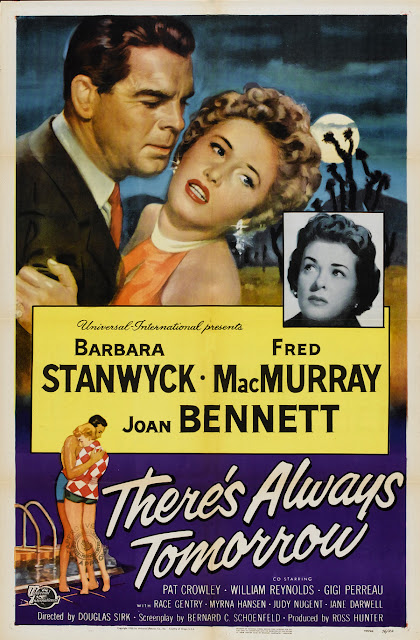Regardless, Sand was a worthwhile nominee for 1949’s Best Color Cinematography and deserves to be seen. It was shot primarily among the high timber in Colorado’s spectacular San Juan National Forest. A pair of journeyman filmmakers, cameraman Charles Clark (who was vastly experienced but didn’t do many Westerns) and director Louis King (who did plenty), make the most of the scenery in order to compensate for an otherwise meager budget and brisk schedule. The Oscar nomination is ample proof that their efforts were worthwhile.
Aside from all that, Sand is a good B movie. It’s the sort of thing that, had anyone actually seen it, would be on a bunch of most-loved lists. The cast is led by one of my film noir favorites, Mark Stevens, as charismatic and underrated as ever. I wrote a lot about him here. The love interest / narrator is Coleen Gray, a much bigger star than Stevens and herself a noir icon. Western stalwart Rory Calhoun goes along for the ride. One of the film’s highlights is a well-staged brouhaha between him and Stevens. The human cast plays third fiddle here, following the scenery and the horse.
Sand is a straight adventure yarn with a simple plot. Rodeo showman Stevens loses his prize horse, Jubilee, in a fiery train wreck, and spends the balance of the picture searching for him. In the meantime, Jubilee gets into plenty of mischief on his own—there’s some Jack London at work here. King doesn’t ask much of his cast, instead focusing his efforts on making a pretty picture buoyed by stellar animal action sequences. One in particular, where Jubilee goes hoof to hoof with another horse while a hungry mountain lion looks on, is especially well done.
This was targeted less at Western fans than at tween girls who still dug horses. If the audience saw the older Stevens as a father figure and Calhoun as a love interest, all the better.
I’d love to see a high-quality print of this, but, after all these years, I feel grateful to have seen it at all.
Sand (1949)
Directed by Louis King
Starring Mark Stevens, Coleen Gray, and Rory Calhoun
Released by 20th Century Fox
Running time: 78 minutes
Availability: Unavailable.
Grade: B+









